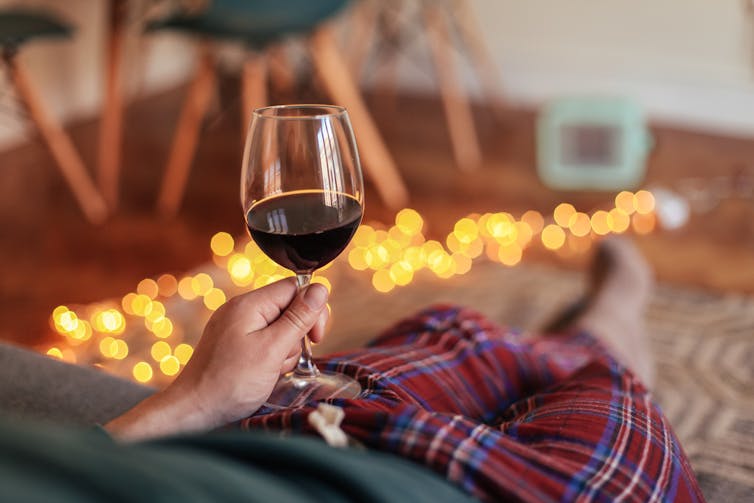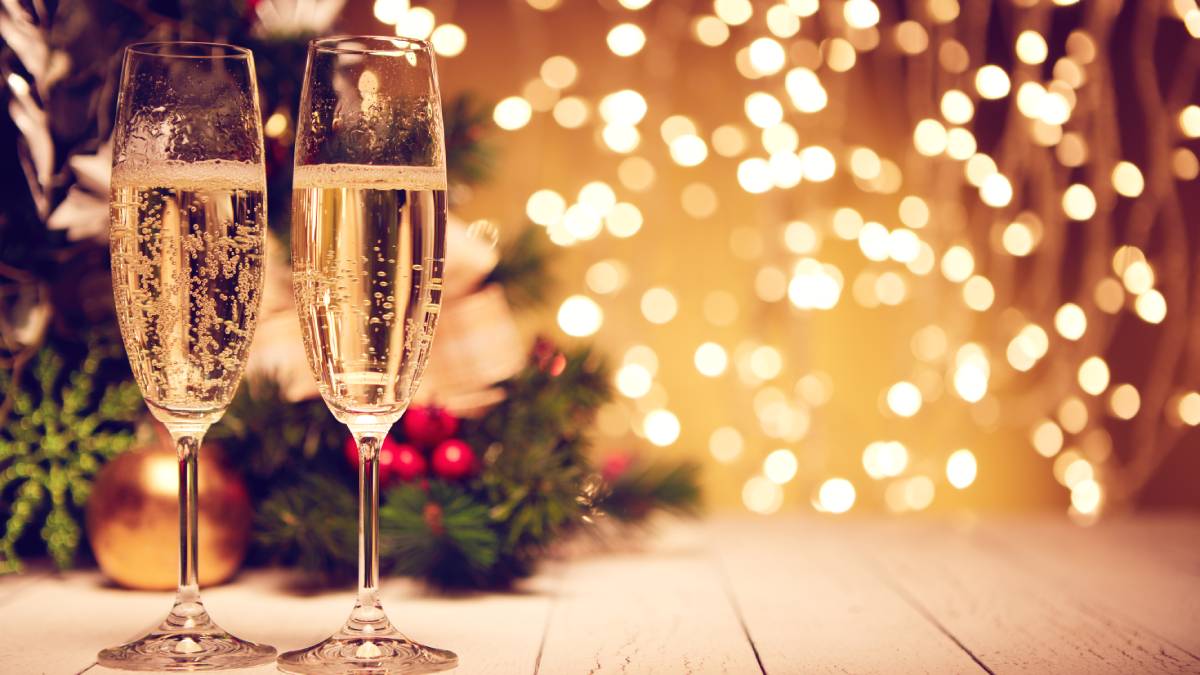Madeline Sprajcer, CQUniversity Australia; Charlotte Gupta, CQUniversity Australia; Chris Irwin, Griffith University; Grace Vincent, CQUniversity Australia, and Saman Khalesi, CQUniversity Australia
You’ve come home after a long day at work, you have dinner, put the kids to bed, and then you have your usual nightcap before drifting off to sleep. Or, perhaps you’re at the pub for the work Christmas party, and you think you’ll just have one more drink before heading home.
That last drink might help you fall asleep easily. But your nightcap can also wreck a good night’s sleep. How could it do both?
Here’s what’s going on in your body when you drink alcohol just before bedtime. And if you want to drink at the Christmas party, we have some tips on how to protect your sleep.
What happens to my body when I drink?
Soon after you drink, alcohol enters your bloodstream and travels to your brain.
There it affects chemical messengers known as neurotransmitters and slows down communication between nerve cells.
Certain regions of the brain are particularly vulnerable to the effects of alcohol. When alcohol interacts with cells in these regions, the overall effect leads to those characteristic feelings of relaxation, lowered inhibitions, slurred speech, and may induce feelings of drowsiness and lethargy.
Alcohol can also have immediate effects on the heart and circulatory system. Blood vessels widen, resulting in a drop in blood pressure, which can make you feel dizzy or lightheaded.
What happens soon after a nightcap?
Drinking alcohol before sleeping is like flipping a switch. At first, alcohol has a sedative effect and you will probably feel more relaxed and drift off easily.
At this point, you still have a high level of alcohol in your blood. But don’t be fooled. As your body processes the alcohol, and the night goes on, alcohol actually disrupts your sleep.

dabyki.nadya/Shutterstock
And later that night?
As your body processes the alcohol and your blood alcohol level drops, your brain rebounds from the drowsiness you would have felt earlier in the night.
This disturbs your sleep, and can wake you up multiple times, particularly in the second half of the night. You may also have vivid and stressful dreams.
This sleep disruption is mainly to the deep, ‘rapid eye movement’ or REM sleep.
This type of sleep plays an important role in regulating your emotions and for your cognitive function. So not getting enough explains why you wake up feeling pretty lousy and groggy.
Drinking alcohol before bedtime also tends to mean you sleep less overall, meaning important rest and recharge time is cut short.
There are also long-term impacts of alcohol on sleep. Moderate and heavy drinkers consistently have poor sleep quality and more sleep disturbances over time.
How about the Christmas party then?
If you plan to drink this holiday season, here are some tips to minimise the effect of alcohol on your sleep:
- swap every other drink. Try swapping every second drink for a non-alcoholic drink. The more alcohol you drink, the more sleep disruption you can expect. Reducing how much you drink in any one sitting can minimise the effect on your sleep
- avoid drinking alcohol close to bedtime. If you give your body a chance to process the alcohol before you go to sleep, your sleep will be less disrupted
- eat while you drink. Drinking on an empty stomach is going to worsen the effects of alcohol as the alcohol will be absorbed faster. So try to eat something while you’re drinking
- ditch the espresso martinis and other caffeinated drinks. Caffeine can make it hard to get to sleep, and hard to stay asleep
- be careful if you have sleep apnoea. People who have sleep apnoea (when their upper airway is repeatedly blocked during sleep) can be even more impacted by drinking alcohol. That’s because alcohol can act as a muscle relaxant, leading to more snoring, and lower oxygen levels in the blood. If you have sleep apnoea, limiting how much alcohol you drink is the best way to avoid these effects
- drink plenty of water. Staying hydrated will help you sleep better and will hopefully stave off the worst of tomorrow’s hangover.
Madeline Sprajcer, Lecturer in Psychology, CQUniversity Australia; Charlotte Gupta, Postdoctoral research fellow, CQUniversity Australia; Chris Irwin, Senior Lecturer in Nutrition and Dietetics, School of Health Sciences & Social Work, Griffith University; Grace Vincent, Senior Lecturer, Appleton Institute, CQUniversity Australia, and Saman Khalesi, Senior Lecturer and Discipline Lead in Nutrition, School of Health, Medical and Applied Sciences, CQUniversity Australia
This article is republished from The Conversation under a Creative Commons licence. Read the original article.
Do a few drinks interrupt your sleep? What do you do to combat that? Why not share your experience in the comments section below?
Also read: Light to moderate drinking may help your heart

